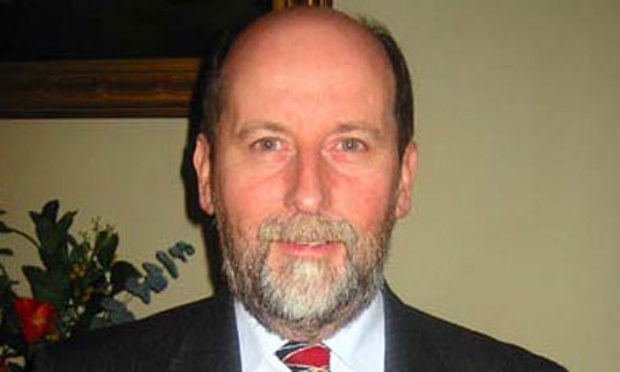Since the report of the MIST Trial was published in Circulation in 2008, I have repeatedly written to the journal to express concern about the paper.
Most recently, on February 22, I wrote to the editor-in-chief of Circulation, which is owned by the American Heart Association (AHA), requesting that they retract the 2008 MIST Trial paper, the revised version of the paper, the correction and the data supplement. The response two days later was from the senior attorney of the AHA: “AHA respectfully declines any further involvement. We consider this matter closed and we will not pursue additional comment or review.”
Let me explain how I got involved, and why I have persisted. I was the principal cardiologist in the MIST Trial sponsored by NMT Medical. Another member of the steering committee (Simon Nightingale) and I refused to be authors of the paper because NMT had refused to allow any investigator to see all the data but even without access to the data it was clear that the paper made false claims. In November 2007, a few days after we refused to be authors, NMT started legal proceedings for libel and slander against me. They also instructed their lawyers to sue Nightingale, but did not start the legal proceedings against him.
As soon as Circulation published the paper in March 2008, I wrote to the journal explaining my concerns about the paper. I also pointed out that Dowson, the first author of the paper and principal headache specialist in the MIST Trial, had a record of research misconduct. Four months before NMT appointed him to the trial in July 2004, the ethics committee responsible for another trial in which he was principal investigator had been informed that he had falsified data in that trial. That ethics committee expelled him from the other trial, said that he was not fit to be a trial principal investigator and reported him to the General Medical Council (GMC), the body that licences doctors to practise in the UK.
When NMT appointed Dowson to the MIST trial, they knew of his research misconduct in the other trial. Nightingale and I and the MIST Trial’s ethics committee were not informed. Even after the GMC found Dowson guilty of falsification of data in the other trial and sanctions were imposed in 2006, we were not informed. We discovered it later.
In March 2008, I told Circulation that Nightingale and I had concerns about the data, that Dowson had a record of research misconduct and that he had not disclosed his financial links with NMT. I told Circulation that Dowson should not be trusted to produce an honest correction, but Circulation would not let Nightingale or me see what they intended to publish as a correction.
In September 2009, Circulation published a new online version of the paper, a 700-word correction and a data supplement. All are false, but at that time, I did not have time to do anything about that. I was tied up with the four libel claims that NMT brought against me. They ended in 2011 when NMT went into liquidation. I was also tied up with my complaint to the GMC about misconduct in the MIST Trial. I provided more than 8,000 documents (more than 32,000pages) to the GMC, which was time consuming. Circulation confirmed that they also provided written evidence to the GMC. So Circulation was well aware of the accusations against Dowson. Circulation said that they would review the matter again when the GMC case was decided.
Dowson’s hearing lasted 3 months (2014-15). I gave evidence for 3 days. Nightingale gave evidence for two days. GMC hearings are governed by English law and cross examination was by senior barristers (Queen’s Counsel).
Dowson was found guilty of dishonesty in the MIST Trial and suspended from medical practise. He appealed to the High Court in late 2015, but the judge rejected his appeal. I informed Circulation that Dowson had been found guilty of dishonesty and a High Court judge confirmed his guilt but Circulation took no action.
A few months ago, I discovered that Circulation had removed the correction and data supplement from the website. As a result the fact that there were concerns about the MIST Trial paper was concealed. I asked Circulation for an explanation. They responded that the correction was back on the website, but did not respond when I asked them to explain why the correction had been removed.
There is clear evidence that both versions of the MIST Trial paper in Circulation contain the false statement that the authors had full access to the data, they contain inaccurate data, they were written by a corresponding author with a record of repeated dishonesty in clinical research and he and others in the MIST Trial failed to disclose financial conflicts of interest. Therefore I wrote requesting that both versions of the paper, the correction and data supplement be removed because all are false.
Peter Wilmshurst is a cardiologist at the NHS in the UK, and, in the words of former BMJ editor in chief Richard Smith, a “successful and cheerful whistleblower.” Read our 2015 Q&A with him here.
Like Retraction Watch? You can make a tax-deductible contribution to support our work, follow us on Twitter, like us on Facebook, add us to your RSS reader, or subscribe to our daily digest. If you find a retraction that’s not in our database, you can let us know here. For comments or feedback, email us at [email protected].

Peter, thank you for your efforts here.
Given the current emphasis on reproducibility & openness in science, this is a sad story on so many levels. Also greatly diminishes the reputation of the AHA & of their flagship journal Circulation, given the described sequence of events in this post. So many missed opportunities to make science better for all in this story…
What a nightmare. Still, you persisted. Well done.